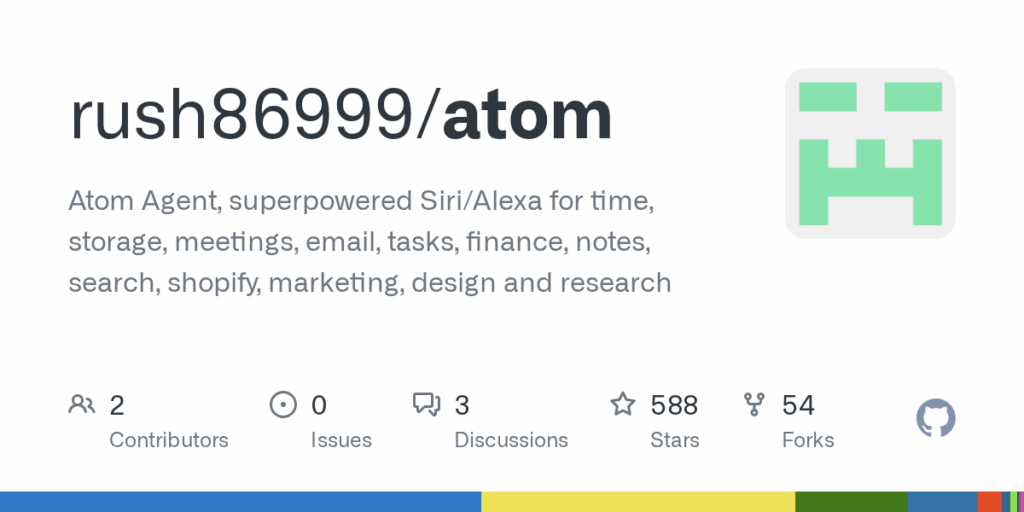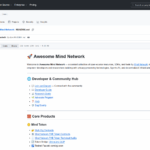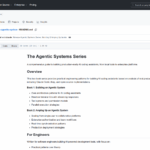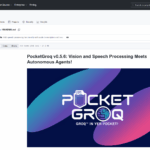Basic Information
Atom is an open-source, self-hosted AI assistant designed to streamline personal and team productivity by automating scheduling, research, finance tracking, communications, and knowledge management. It implements an autonomous multi-agent architecture that coordinates specialized agents to perform multi-step workflows without manual intervention. The project emphasizes privacy and control by supporting local Docker Compose or AWS self-hosted deployments and is configured via environment variables. Atom supports a voice-first interface with wake word detection and integrates with calendars, email, task managers, cloud storage, CRM, finance services, social media, and marketing tools. The README and documentation describe 70+ integrated skills across 12+ platforms, deployment guides, and detailed technical documentation for end users and operators who want a customizable, transparent assistant rather than a closed commercial service.








